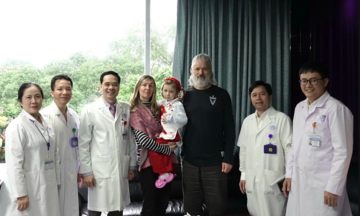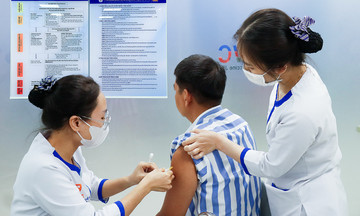Answer:
An underdeveloped (infantile) uterus is a condition in which a woman of reproductive age has a uterus that hasn't grown to its normal size, remaining as small as a young girl's. Uterine growth depends on the hormones estrogen and progesterone, as well as the menstrual cycle and pregnancy. To carry a pregnancy to term, a woman's uterus must have an anteroposterior diameter (APD) of 35 mm to 45 mm. However, if estrogen and progesterone levels are low for some reason, the uterus may not develop fully. This can also be a congenital defect or a genetic condition causing uterine defects from birth.
An underdeveloped uterus accompanied by absent periods during reproductive age is a complex condition, often a sign of underlying illness or congenital, genetic, or endocrine abnormalities. Before starting treatment, doctors conduct a thorough examination covering several aspects.
Genetic factors: Certain sex chromosome abnormalities can cause the uterus to underdevelop or stop growing, leading to a small uterus (underdeveloped uterus) and absent periods. These include Turner syndrome and disorders of sex development (DSD). Doctors typically recommend genetic testing and chromosome analysis to identify any sex-related disorders. If an abnormality is found, treatment and the possibility of having children depend on the nature of the genetic disorder.
 |
Doctor Nguyen Thi Thanh Tam advises a woman about menstrual disorders. Photo illustration: Tue Diem |
Next, doctors assess the woman's endocrine system, checking hormone levels such as FSH, LH, estrogen, progesterone, prolactin, and thyroid hormones to evaluate whether endocrine disorders are hindering uterine and ovarian development. In some cases, simply adjusting hormone levels can allow the uterus to grow, the uterine lining to thicken, and menstruation to resume.
After a thorough examination, if a woman has no significant genetic issues or underlying medical conditions, treatment for an underdeveloped uterus can be pursued to increase its size and enable pregnancy. This process requires monitoring uterine response through regular ultrasounds to assess uterine size and endometrial thickness.
Conversely, women with confirmed genetic abnormalities or severe uterine malformations due to congenital abnormalities causing reproductive organ defects, such as uterine agenesis due to Mayer-Rokitansky-Küster-Hauser (MRKH) syndrome, may be unable to conceive naturally. In such cases, surrogacy or adoption can be considered.
Around 3-5% of women of reproductive age experience problems related to uterine abnormalities, with an underdeveloped uterus being one of the causes of infertility. Thanks to advancements in reproductive medicine, such as in vitro fertilization (IVF), women can become mothers even with uterine, ovarian, or endocrine abnormalities.
If you are of reproductive age and experiencing these issues, consult a hospital with a specialized obstetrics and gynecology unit for comprehensive genetic and endocrine testing. Based on the results, doctors can recommend an appropriate treatment plan.
Doctor Nguyen Thi Thanh Tam
Center for Obstetrics and Gynecology, Tam Anh General Hospital TP HCM
| Readers can submit questions about pregnancy and childbirth here for doctors to answer. |












